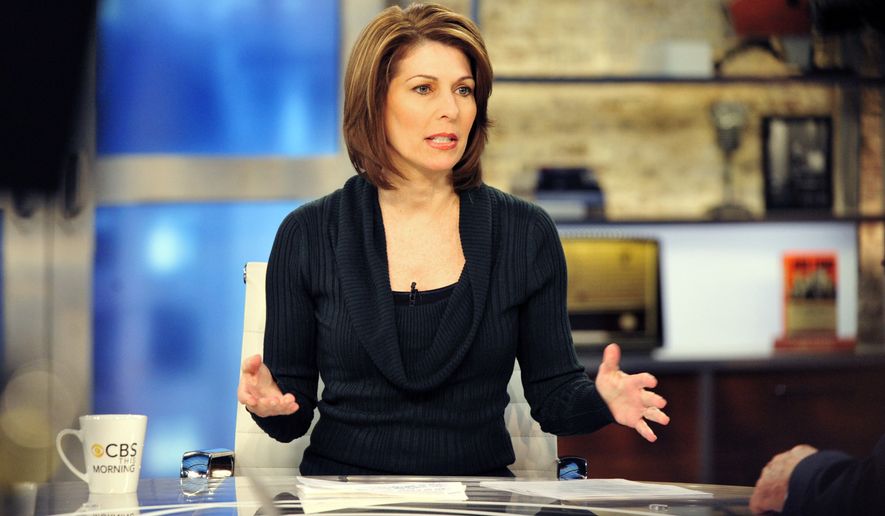Those who suspect the worst about the Obama administration and the media won’t have their beliefs contradicted by former CBS News reporter Sharyl Attkisson’s explosive new book, “Stonewalled: My Fight for Truth Against the Forces of Obstruction, Intimidation and Harassment in Obama’s Washington.”
“Stonewalled” (HarperBooks), in which Ms. Attkisson recounts the conflicts over coverage with network executives leading up to her resignation in March, isn’t scheduled for release until Tuesday, but eye-popping excerpts are making their way into the press and social media.
The most incendiary charge: that Ms. Attkisson’s personal computer and CBS laptop were hacked after she began filing stories about Benghazi that were unflattering to the Obama administration. A source who checked her laptop said the hacker used spyware “proprietary to a government agency,” according to a Monday article in the New York Post.
“This is outrageous. Worse than anything Nixon ever did. I wouldn’t have believed something like this could happen in the United States of America,” said the source, according to Ms. Attkisson’s account in the New York Post.
In an Oct. 3 video preview of the book, Ms. Attkisson describes how her computer suddenly went haywire as she was working at home on a Benghazi story.
“As I was typing and working on questions for a Benghazi-related story, the data started wiping kind of at hyperspeed, being deleted, as if my computer had been hijacked and I had no control over it,” Ms. Attkisson says in the video.
“I knew because I had had so many anomalies over the past year and a half, two years, that someone was interfering with the computer,” she said. “It was described to me by the computer experts I consulted with afterward that that was purely an attempt to let me know that they could do that and they were watching and that they were in my computer.”
Although Ms. Attkisson calls herself a political agnostic who was equally tough on the Bush administration, she said her dogged reporting on stories such as the Benghazi assault, the Fast and Furious gun-running scandal, Solyndra and Obamacare made her a persona non grata with her liberal CBS bosses.
“Many in the media are wrestling with their own souls: They know that ObamaCare is in serious trouble, but they’re conflicted about reporting that,” Ms. Attkisson says in the Post account. “Some worry that the news coverage will hurt a cause that they personally believe in. They’re all too eager to dismiss damaging documentary evidence while embracing, sometimes unquestioningly, the Obama administration’s ever-evolving and unproven explanations.”
As the November 2012 election approached, her hard-hitting stories about Benghazi wound up on the network’s website instead of on the air. So did a story about a Korean green-energy firm receiving U.S. subsidies.
At one point, the network lost interest in Ms. Attkisson’s Fast and Furious stories. A producer told her, “You’ve reported everything. There’s really nothing left to say.”
She ran afoul of a network executive when she appeared on conservative talk-show host Laura Ingraham’s radio show, who told her Ms. Ingraham was “extremely, extremely far right.” One of her higher-ups insisted on identifying conservative analysts as “conservative,” but liberal analysts were just “analysts.”
CBS officials have not commented publicly on the book, and a New York Post reporter wrote in a Monday article that he was unable to reach executives for their reaction.
Ms. Attkisson said the network’s kid-gloves treatment also applied to its sponsors. She quotes an executive warning not to do anything to upset “corporate partners” until the stock split in 2006, according to the Post account.
She won five Emmys in her nearly 20 years at CBS, but Ms. Attkisson recently has been attacked by left-wing groups. A senior researcher at Media Matters in June described Ms. Attkisson’s reporting as “shoddy,” and Salon’s Simon Maloy mocked her “borderline obsessive focus on Benghazi.”
In her video, Ms. Attkisson says the public “needs to learn to watch the news much as you do a TV commercial. You need to start thinking, ’Why is that story airing? Who pushed it?’ What special interest might be behind it? And am I getting the full story?’
“I’ve never seen a tougher clampdown on freedom of the press, and I think it’s important that someone stand and say these things and speak out about them,” she said.
She concludes, “I think in general I’m just one of the reporters top on a list of those they watch and they disagree with and they fight.”
• Valerie Richardson can be reached at vrichardson@washingtontimes.com.




Please read our comment policy before commenting.